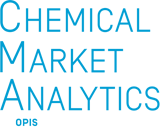- Market Overview
- Key Benefits
- Service Features
- Annual Table of Contents
Market Overview
Duration: Long-term outlook to 2050
Acrylic acid and acrylate esters are versatile monomers used as building blocks for thousands of polymer formulations. They are flammable, reactive, and volatile liquids based on an alpha, beta-unsaturated carboxyl structure. The incorporation of varying percentages of acrylate monomers permits the production of many formulations for latex and solution copolymers, copolymer plastics, and cross-linkable polymer systems. Their main performance characteristics—which comprise varying degrees of tackiness, durability, hardness, and glass transition temperatures—promote their consumption in many end-use applications. Major markets for acrylate esters include surface coatings, textiles, adhesives, and plastics. Typical applications for polyacrylic acid, or its copolymers, are superabsorbent polymers (SAP), detergents, dispersants, flocculants, and thickeners. SAPs are primarily used in disposable diapers, adult incontinence products, and feminine hygiene products.
Currently, the two-stage process to produce acrylic acid from propylene via vapor-phase oxidation with a heterogeneous catalysis system is the predominant technology practiced commercially. Other routes to acrylic acid have been developed or are being developed. Acrylic acid demand is driven by very different industries, each with its own dynamics and growth patterns. Demand for acrylic acid in the production of glacial acrylic acid (GAA) is determined by demographics and income levels because a major end-use is the production of SAPs for diapers and other hygiene products. A significant proportion of GAA is also consumed in the production of non-cross-linked polyacrylic acid and copolymers, which are used as detergent co-builders, dispersants, flocculants, and thickeners. The other 50% of acrylic acid demand remains linked to the production of acrylate esters, which are used in various industries for paints, coatings, and resin formulations. These end uses are much more dependent on GDP growth and demand from residential construction, packaging, and automotive manufacturing.
Key Benefits
Duration: Long-term outlook to 2050
The World Analysis – Acrylates & SAP provides a comprehensive analysis and key insights of critical market developments as they shape the future outlook for the global Crude Acrylic Acid (ACA), Glacial Acrylic Acid (GAA), n-Butyl Acrylate (BA), 2-Ethylhexyl Acrylate (2-EHA), and Superabsorbent Polymers (SAP) markets.
The following reports, data files, analytical tools and visualization modules are available online and can be downloaded from our website:
- Direct Access to the Subject Matter Experts
- In-depth exploration of present market strategic insights, recognition of critical challenges, and presentation of our experts’ forecasts and analysis
- Explanatory Notes detailing data sources, methodologies, unit and conversion factors, and World Analysis deliverables.
- Energy and Economy assumptions
- Price, cost, and margin base assumptions forecast and sensitivities analysis, including price assessment methodology and price definitions across all regions.
- Excel data files with standard supply/demand graphics and price forecasts extended to 2050, trade grids with country and regional trade flows Data appendix (Excel) with supply/demand, capacity and trade tables.
- An online dashboard visualization of capacity, supply/demand, trade grids, and price, cost and margin forecasts
- Supply/demand and capacity database access via data browser
- Data Appendix (Excel) with supply/demand and capacity tables
- Capacity by company/shareholder, capacity integration, top producer/consumer and surplus/deficit capacity ranking, and ownership/subsidiary information
In addition to the main product(s), Crude Acrylic Acid (ACA), Glacial Acrylic Acid (GAA), n-Butyl Acrylate (BA), 2-Ethylhexyl Acrylate (2-EHA), and Superabsorbent Polymers (SAP), capacity is provided for the following products:
- Ethyl Acrylate (EA), Methyl Acrylate (MA)
This World Analysis contains detailed information on capacities, production, demand, and trade for all significant producing and consuming countries and regions. Although data gathering is essential for understanding history and potential future trends, we believe that the interpretation and analysis of the data is the most valuable information to our clients.
Service Features
Duration: Long-term outlook to 2050
SUPPLY/DEMAND BALANCES
Frequency: Bi-annual
Format: Excel
Timeframe: 10-year forecasts available from periods 1990 – 2050
Area Coverage: By country/region; include “hypothetical” capacity changes in the forecast period
Chemical Coverage: Acrylic Acid (Crude), Acrylic Acid (Glacial), n-Butyl Acrylate, 2-Ethylhexyl Acrylate, Ethyl Acrylate, Methyl Acrylate, Superabsorbent Polymers (SAP)
CAPACITY DATABASE
Frequency: Updated daily
Format: Excel
Timeframe: 10-year forecasts available from periods 1990 – 2050
Coverage:
- Nameplate capacity on individual plant location by producer and by the shareholder for main study products + essential derivatives
- Integration table and top producer and consumer ranking tables (includes net surplus/deficit)
PRICE & COST FORECASTS
Frequency: Quarterly
Format: Excel
Timeframe: up to 2050
Area Coverage: For the critical regions of North America (US), Europe & Asia
Chemical Coverage: Acrylic Acid (Glacial), n-Butyl Acrylate, 2- Ethylhexyl Acrylate, Superabsorbent Polymers (SAP)
TRADE GRIDS
Frequency: Bi-annual
Format: Excel
Timeframe: 1 year of history, up to 10 years of forecast
Area Coverage: Between partner countries and by region
Chemical Coverage: Acrylic Acid (Crude), Acrylic Acid (Glacial), n-Butyl Acrylate, 2- Ethylhexyl Acrylate, Ethyl Acrylate, Methyl Acrylate, Superabsorbent Polymers (SAP)
REPORT WITH STRATEGIC INSIGHTS AND EXECUTIVE OVERVIEW
Frequency: Annual
Format: PDF/HTML
Timeframe: 5-year history, forecast to 2050
Coverage: Regional market summaries
- Production economics/snapshots for selected regions/processes
- Production process/technology overview
ADDITIONAL FEATURES
- Access to our global team of subject matter experts
- Interactive data visualization module (dashboard)
- Standard supply/demand graphs
- Data appendix with supply/demand and capacity tables
- Supply/demand and capacity database access via data browser
Annual Table of Contents
- Introduction 6
- Executive Overview 7
- Acrylic Acid 7
- Acrylates 10
- SAP 14
- Strategic Insights 17
- Economic Forecast Update 17
- Capacity developments and outlook - Mainland China and India 18
- High energy prices and Cost competitiveness 19
- Environmentally friendly SAP 21
- North America 23
- Acrylic Acid 23
- Acrylates 25
- SAP 27
- South America 28
Market Coverage
Adhesives
Baby Diapers
Buildings & Constructions
Paint & Coating
Related Products
Related Chemicals
Program Experts
Joyce Jahyung Lee
Associate Director, APAC Acrylic Acid, Acrylates, SAP, MMA, Oxo Alcohols, Plasticizers
Julian Gunther
Principal Analyst - Olefin Derivatives - Americas Acrylic Acid, Acrylates, SAP, MMA, Oxo Alcohols, Plasticizers
Martin Staley
Executive Director, EMEA Acrylic Acid, Acrylates, SAP, MMA, Oxo Alcohols, Plasticizers
Wei Lu
Research and Analyst Director, Asia Light Olefins
Looking for Short Term Analysis ?
Your Success, Our Priority
In a world where markets evolve rapidly, having the right insights is the key differentiator. Partner with us for critical market insights that propel you beyond competition. Your success is not just a goal, it's our commitment.
Contact us today to revolutionize your approach to business strategy with Market Insights!




